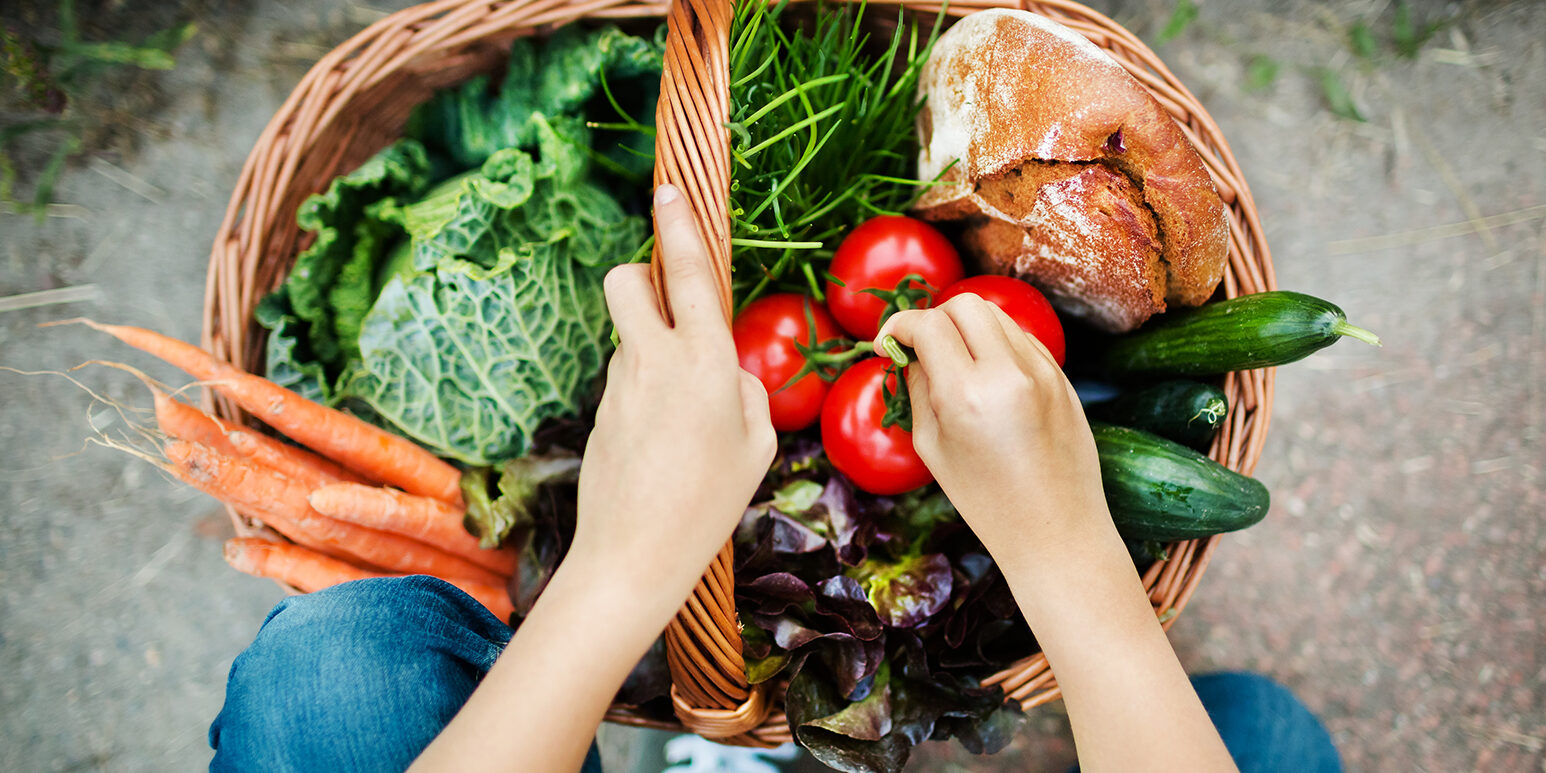By Gigi Ravenhall, RDN, CDN
Home gardens can be a fun and rewarding way to improve your diet by adding nutrient rich fruits and veggies into meals and snacks! The summer season on Long Island gives us plenty of time to start a garden, big or small, and to reap the benefits of what we’ve sown.
All fruits and vegetables contain vitamins and minerals that are beneficial to our health and prevent us from developing nutrition deficiencies associated with inadequate intake of foods rich in these nutrients. Fruits and vegetables contain phytochemicals that are naturally occurring compounds that have protective health benefits. Fruits and vegetables also contain fiber! Fiber is a carbohydrate that the body cannot digest. Fiber helps to keep us regular, regulate our blood sugar levels, and keep us feeling full longer.
The following nutrients are found in these various fruits and vegetables that are well suited for our climate here on Long Island. You might be surprised to find out how beneficial each of these foods can be to your health.
- Vitamin A: Important for growth and development, immune function, reproduction, skin, bone and red blood cell formation, and vision.
Found in: Carrots, spinach, broccoli, pumpkin, red peppers, asparagus - Vitamin C: Important for antioxidant function, collagen and tissue formation, immune function and wound healing.
Found in: Broccoli, brussels sprouts, peppers, strawberries, asparagus, tomatoes, pumpkin, onion, eggplant, cauliflower, cabbage, beets - Vitamin E: Important for antioxidant function, formation of blood vessels and immune function.
Found in: Spinach, broccoli, kale, asparagus, squash, pumpkin, peppers - Vitamin K: Important for blood clotting and strong bones.
Found in: Spinach, broccoli, kale, asparagus, tomatoes, cauliflower, cabbage - Biotin: Aids in energy storage & metabolism.
Found in: Cauliflower - Folic Acid: Aids in protein metabolism and red blood cell formation, and prevents certain birth defects.
Found in: Asparagus, beans, peas, tomatoes, radishes, peppers, onion, cauliflower, beets - Niacin: Helps convert food to energy, aids in digestion and helps with proper nervous system functioning.
Found in: Beans, radishes - Pantothenic Acid: Aids in metabolism, hormone production, nervous system function and red blood cell formation.
Found in: Broccoli, beans, peas, cauliflower - Riboflavin: Aids in conversion of food to energy, red blood cell formation and growth and development.
Found in: Spinach, pumpkin - Thiamin: Aids in conversion of food to energy and nervous system function.
Found in: Beans, peas, pumpkin - Calcium: Important for blood clotting, bone and teeth formation, hormone secretion, muscle contraction, and nervous system function.
Found in: Spinach, broccoli, kale, lettuce - Chloride: Aids in maintaining proper acid/base balance, conversion of food to energy, digestion, fluid balance and nervous system function.
Found in: Lettuce, tomatoes - Chromium: Aids in insulin function and macronutrient metabolism.
Found in: Broccoli, apples - Iron: Important for energy production, growth and development, immune function, red blood cell formation, reproduction and wound healing.
Found in: Beans, peas, spinach, broccoli, kale, beets - Magnesium: Aids in blood pressure regulation, blood sugar regulation, bone formation, energy production, hormone secretion, immune function, hormone secretion, immune function, normal heart rhythm and protein formation.
Found in: Beans, peas, spinach, broccoli, kale, pumpkin seeds, lettuce - Manganese: Aids in macronutrient metabolism, cartilage and bone formation and wound healing.
Found in: Beans, spinach, squash, pumpkin, beets - Potassium: Aids in blood pressure regulation, carbohydrate metabolism, fluid balance, growth and development, heart function, muscle contraction, nervous system function and protein formation.
Found in: Spinach, beets, beet greens, tomatoes, radishes, squash, pumpkin, peppers, lettuce, eggplant, cucumber, carrots - Zinc: Important for growth and development, immune function, nervous system function, protein formation, reproduction, taste and smell and wound healing.
Found in: Beans, peas
For detailed information on the appropriate timing and planting instructions for your own vegetable garden please see the following guideline from Cornell Cooperative Extension: https://s3.amazonaws.com/assets.cce.cornell.edu/attachments/11705/Vegetable_Planting_Times_Guidelines_for_LI.pdf?1446826465
Gigi Ravenhall is a Registered Dietitian who works with Dr. Arif Ahmad to ensure the best possible nutritional outcomes for those having bariatric surgery. She sees patients at our Port Jefferson office and in our Riverhead location.

